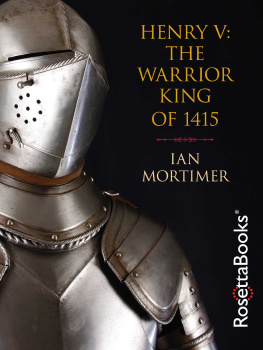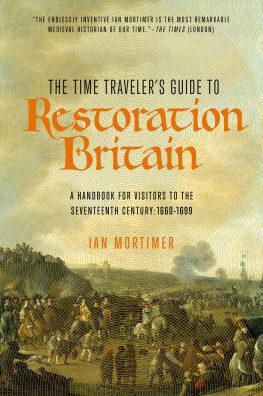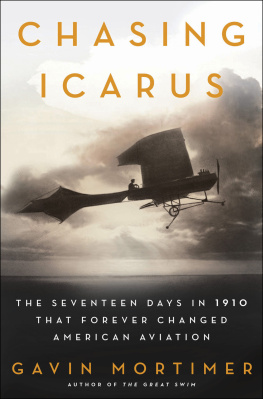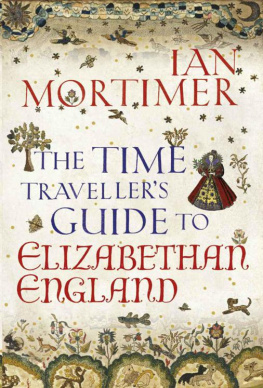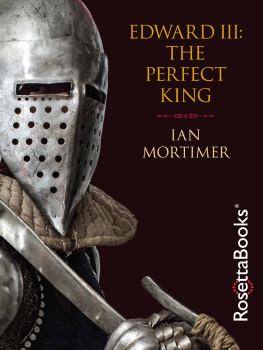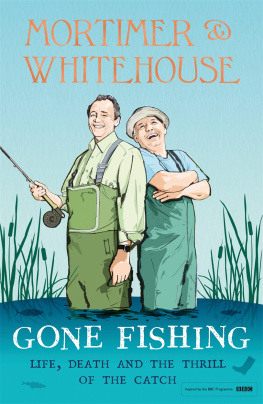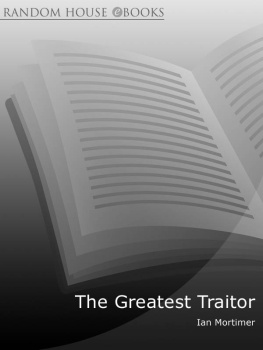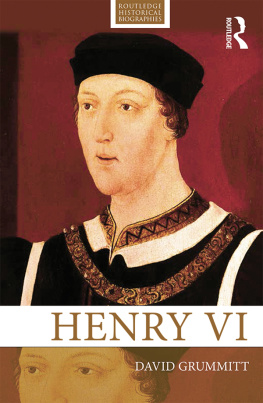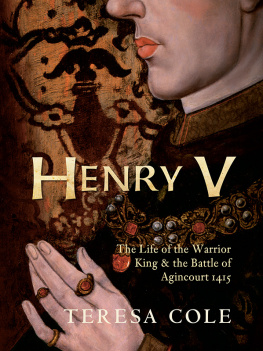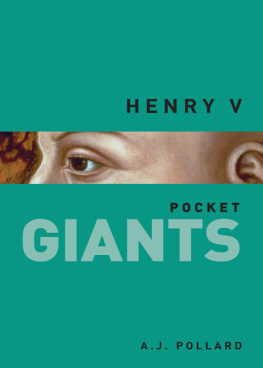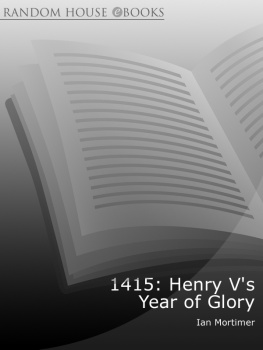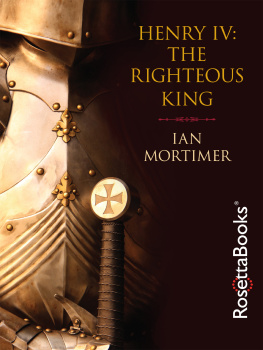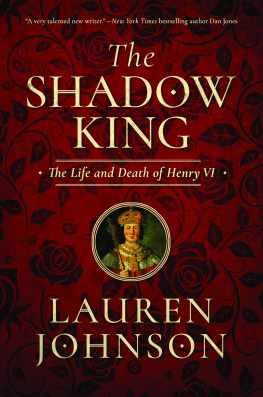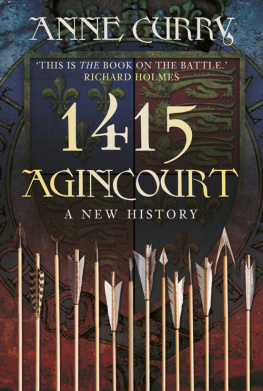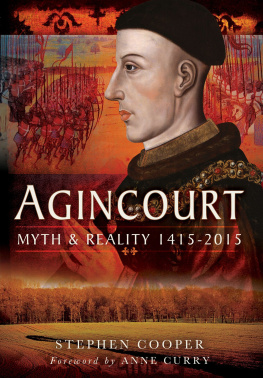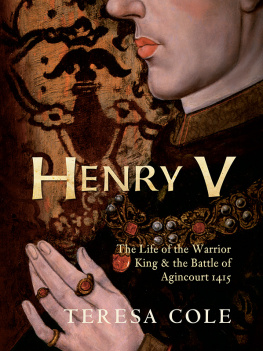Henry V:
The Warrior King of 1415
Ian Mortimer
Copyright
Henry V: The Warrior King of 1415
Copyright 2009, 2013 by Ian Mortimer
Cover art, special contents, and Electronic Edition 2013 by RosettaBooks LLC
All rights reserved. No part of this book may be used or reproduced in any form or by any electronic or mechanical means, including information storage and retrieval systems, without permission in writing from the publisher, except by a reviewer who may quote brief passages in a review.
Cover jacket design by Carly Schnur
ISBN e-Pub edition: 9780795335495
Authors Note
Foreign names have been treated in two ways. Members of the French royal family, including royal cousins (e.g. John the Fearless; Philip, count of Vertus) have been given in English. French individuals who were not members of the royal family have been named in French (e.g. Jean Petit, Jehanne de Lesparre) with the exception of the one reference to Joan of Arc, whose name is well known in the English-speaking world. Other foreign names have normally been given in the usual spelling in the original languagee.g. Duarte of Portugal, Joo of Portugal, Juan of Castile, Pedro de Luna, Giovanni Dominiciwhere possible. However, some Eastern European names have been given in English, e.g. Lord John of Chlum, Wenceslas of Dub and Peter of Mladoovice.
With regard to currencies, readers might like to bear in mind that the pound sterling () was just one of two units of account in England. The other was the mark, which was the equivalent of two-thirds of a pound, or 13 shillings and 4 pence (13s 4d). Thus the gold coin called a noble6s 8dwas one third of 1 and one half of a mark.
French money has usually been quantified in terms of crowns (cus la couronne). The usual conversion rate has been taken as 6 crowns to 1 (so one French gold crown = one English gold half-noble). The discussion concerning the dowry of the Princess Katherine in early June 1415 touched upon treating the matter in terms of francs; as explained in the text, the franc was worth very slightly less, there being about 10.5 francs to 10 crowns.
The term Gascony in this book should be taken to mean all the territory under English rule in the southwest of France, as in my previous books.
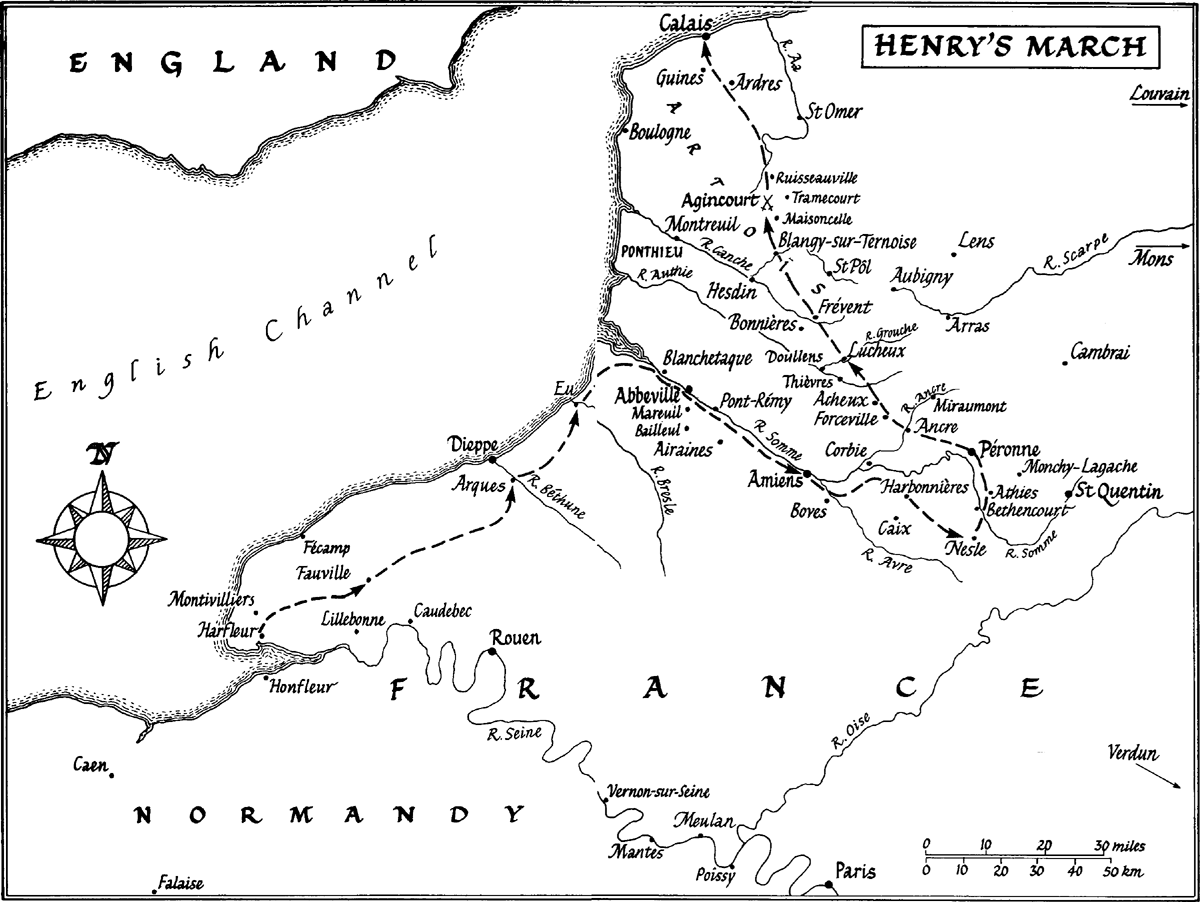
List of Illustrations
Acknowledgements
In the course of researching and writing this book I have been assisted by many people and several organisations. In particular I would like to thank my editors, Will Sulkin and Jrg Hensgen at Random House, and my agent, Jim Gill, at United Agents. The Royal Literary Fund was extremely generous in supporting me financially during a very difficult period. Grants from two funds managed by the Society of Authorsthe Frances Head Bequest and the Authors Foundationwere similarly crucial to my continuing to work on this book. I am very grateful to all those who showed such faith in this project that they kept me and the family from penury.
I am very grateful to Stephen Read for his assistance in editing my multiple images of the battlefield at Agincourt in seamless files. Ric Horner kindly provided me with the image of Archbishop Chicheles tombthanks Ric. I also owe a big thank you to the novelist Hayden Gabriel for several meaningful discussions about the objective correlative as we trudged over Dartmoor. More thanks to Kay Peddle for assistance with picture research. And thanks to my brother David Mortimer for the advice about blacksmiths and smithying.
More formally, I am grateful to the University of Exeter for continuing to have me as an Honorary Research Fellow and to grant access to a number of research resources and library facilities. I acknowledge the generosity of Professor Anne Curry and her publishers, Boydell and Brewer, in granting permission to quote from her translations in The Battle of Agincourt: Sources and Interpretations (Woodbridge, 2000).
With respect to accommodation on research trips, I would like to say a special thank you to both sides of the Gavrilenko familyboth in Moretonhampstead (Liz and Laurent) and in Paris (Marie-Thrse, Franois and Marie-Pierre). Thanks also to Jay Hammond, Zak Reddan and Mary Fawcett for accommodating me on visits to London.
Last and most of all, I am very grateful to my wife Sophie for continuing to live with me while I have worked on this book. Living with a historian isnt always easy. Constantly tumbling through a galaxy of facts, day and night, is extremely disorientating; and writing experimental history is never conducive to a relaxed way of life. But Im very glad that she has put up with everythingfrom being burnt at the stake at the Council of Constance, murdered in Paris, beheaded at Southampton, besieged at Harfleur and shot to ribbons at Agincourt. Greater love hath no authors wife than this.
Prologue
This book is not about a battle. It is about a man and his time. I have tried to show what he was and what he achieved over the course of one year: what he believed in, what he destroyed and what he became.
The subject was not an ordinary man. Indeed, Henry V was not an ordinary king. He was a hero in his own lifetime. Following his early death in France in 1422, he was given a semi-legendary status. In the 1590s he was already established as an English national icon; Shakespeare simply took that icon and gave it an enduring value, even to less warlike generations, by putting his most patriotic speeches into Henrys mouth. Shakespeare also gave Henry a more rounded, likeable personality: he gave him a cheeriness that the real Henry never had. When presented with the good looks and dramatic flair of Lawrence Olivier, in his film of Shakespeares Henry V, delivered in an appropriately patriotic style for English and American audiences during the Second World War, Henry became the archetypal English champion. His negative traits were forgotten, all the failures of the age were blamed on other men, and all the successes attributed to him.
As a result of this extreme adulation even the most scholarly historians have found it difficult to maintain their historical objectivity. The most famous example is the declaration by the English historian K. B. McFarlane that Henry V was, the greatest man that ever ruled England. Thus my verdict on Henrys supposed greatness is very different from Mr McFarlanes.
There are already dozens of books on Henry V and dozens more on Agincourtmany of them by academic specialists who have devoted decades to the study of Henry and his battles. So it is fair to ask: what can I hope to do historically over and above their collective efforts? What are the aims of this book?
First, it is a continuation of my examination of the nature of personality and political ambition in the middle ages, continuing these themes from my earlier books about Roger Mortimer, Edward III and Henry IV. It is thus the fourth volume of my biographical history of later medieval England. Second, I have tried to give a fuller and more representative view of Henrys non-military activities in this year, especially his religious deeds, which tend to be very briefly noted as examples of his spirituality in full-length biographies and books about Agincourt. Third, I have paid much more attention than usual to the characters and social movements that formed the backdrop to Henrys ambitions in 1415, especially with regard to the papal conflicts and the burning of Jan Hus at the council of Constance. It is important to remember that, at the same time as Henry was trying to reunite the kingdom of England and France, many people were trying to reunite the Church, and Henry himself drew parallels between the two unifying movements. Fourth, I have tried to show how Henrys activities were part of a wider attempt to unite religious and political authority at the timea European-wide movement towards establishing the divine right of kings, and in many ways the basis for the shift towards absolutism in the following century.

